Introduction
Why Do Guinea Pigs Vibrate: Guinea pigs are endearing and curious creatures that often display a wide range of behaviors, some of which can leave their owners intrigued and even puzzled. One such behavior that has been a source of fascination for guinea pig enthusiasts is their tendency to vibrate. These small rodents are known for their gentle and social nature, but when they start to vibrate, it can raise questions about their well-being and communication.
While the act of a guinea pig vibrating may seem mysterious at first glance, it is a phenomenon deeply rooted in their biology and social interactions. Understanding behind this behavior provides valuable insights into the world of these adorable and sociable animals. Guinea pigs, scientifically known as Cavia porcellus, are native to the Andes region of South America and have been domesticated for centuries.
Vibrating, often referred to as “purring” or “rumbling,” is just one facet of this communication repertoire. It is characterized by a low, continuous sound, the purring of a cat, accompanied by subtle bodily movements. Guinea pigs exhibit this behavior in a variety of situations, from moments of contentment and relaxation to more complex social interactions.
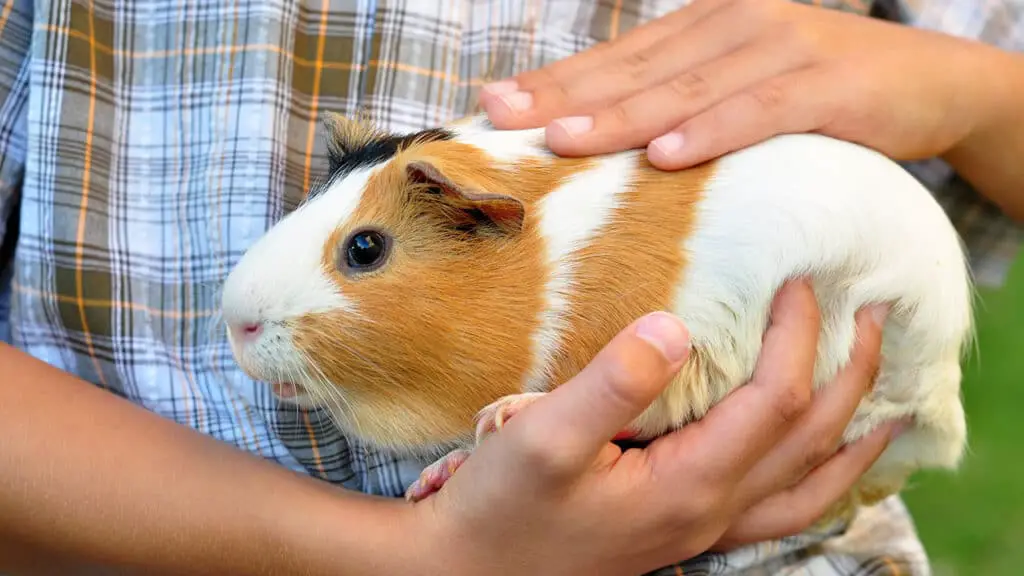
What does it mean when your guinea pig keeps vibrating?
A vibrating guinea pig can mean a few things. It can mean that they are happy, angry, threatened, stressed or cold. Once you understand your guinea pigs behavior more you’ll begin to notice if this is a positive or negative mood.
Happiness and Contentment: Guinea pigs often vibrate when they are relaxed and content. This gentle, rhythmic sound and movement can be a sign that they feel safe and comfortable in their environment.
Communication: Vibrating can also serve as a form of communication among guinea pigs. It might be an expression of affection or bonding, especially when they are interacting with other guinea pigs.
Stress or Fear: In some cases, vibrations may indicate stress or fear. If your guinea pig is in an unfamiliar or uncomfortable situation, it might vibrate as a sign of distress. Other signs like hunching, teeth chattering, or hiding should be considered along with the vibrations to assess their emotional state accurately.
Cold: When guinea pigs are cold, they may vibrate as a way to generate heat and stay warm. Make sure their cage is in a suitable location with a stable temperature to prevent them from getting too cold.
Illness or Discomfort: If your guinea pig is vibrating excessively or in combination with other unusual behaviors e.g., loss of appetite, lethargy, it could be a sign of an underlying health issue. In such cases, it’s crucial to consult a veterinarian for a proper diagnosis and treatment.
Do guinea pigs purr vibrate?
Depending on the situation and environment of your guinea pig, you can probably figure what kind of purring is happening. The rumble is similar to the purr, except with a vibrating effect and lower pitch. The male uses this sound when he is wooing the female to mate. In a way, it’s his mating call.
Mating Behavior: Male guinea pigs often rumble or purr when they are courting a female for mating. This sound is part of their courtship ritual and is intended to signal their interest in reproducing.
Contentment and Bonding: Guinea pigs may also purr or rumble when they are feeling content, relaxed, and happy. It can occur during social interactions with other guinea pigs or when they are receiving gentle petting and attention from their human companions. In this context, it’s a positive and friendly form of communication.
Dominance and Social Hierarchy: Sometimes, guinea pigs use rumbling as a way to establish dominance or express their rank within a group. It can be part of their social interactions and communication, especially if there are multiple guinea pigs living together.
Why is my guinea pig shaking and not moving?
Shivering could also be indicative of illness. If your guinea pig is listless and shivering, then it is very likely that it needs medical attention as soon as possible.
Illness: Shivering and lethargy can be symptoms of various health conditions, including respiratory infections, urinary tract issues, dental problems, or gastrointestinal disorders. Guinea pigs are known to mask their illnesses, so any noticeable change in behavior should be taken seriously.
Pain: If your guinea pig is in pain due to an injury or an internal issue, it may shake or become immobile. Dental problems or conditions like bloat can cause severe discomfort in guinea pigs.
Stress: Guinea pigs are sensitive animals, and stress can have a significant impact on their well-being. Sudden changes in their environment, loud noises, or social conflicts with cage mates can lead to stress-related symptoms.
Is it bad if my guinea pig vibrates?
Guinea pigs vibrate as a form of communication to show both positive and negative emotions. Your guinea pig could feel uneasy or annoyed, or their environment may be too cold. Male guinea pigs also vibrate to attract females.
Positive Emotions: Vibrating or purring can be a sign of contentment and happiness in guinea pigs. In this context, it is a positive expression, and there is typically no cause for concern. Your guinea pig may vibrate when they are relaxed, comfortable, or enjoying social interaction with you or other guinea pigs.
Negative Emotions: On the other hand, vibrations can also indicate negative emotions such as annoyance, frustration, or unease. If your guinea pig is vibrating along with other signs of stress, like teeth chattering or hiding, it may be a cause for concern. In such cases, to assess the situation and address any potential stressors in their environment.
Cold Temperature: Guinea pigs may vibrate when they are cold as a way to generate heat and stay warm. If the environment is too chilly, it’s essential to provide them with proper insulation and heating to prevent discomfort.
Mating Behavior: Male guinea pigs often vibrate when trying to attract females for mating. This is a natural behavior associated with reproduction and is not inherently bad.
How do you calm a shaking guinea pig?
This will help keep them calm when they feel threatened or scared. As social as guinea pigs are, they often need some time away from their hutch-mates and humans.
Provide a Safe and Quiet Space: Place your guinea pig in a quiet and secure location, away from any potential stressors or loud noises. Ensure they have a clean and comfortable cage with fresh bedding and access to food and water.
Gentle Handling: Approach your guinea pig calmly and slowly. Use gentle and reassuring movements when handling them. Avoid sudden or jerky motions, which can startle them further.
Speak Softly: Speak to your guinea pig in a soft, soothing voice. Your voice can be reassuring, and they may recognize your tone as a source of comfort.
Offer Treats: Guinea pigs often respond well to their favorite treats. Offer small portions of their favorite fruits or vegetables as a way to encourage them to eat and associate your presence with positive experiences.
Petting and Cuddling: If your guinea pig enjoys being petted or cuddled, do so gently and calmly. Use slow and deliberate strokes to help them feel more relaxed.
Respect Their Space: Pay attention to your guinea pig’s body language. If they seem uncomfortable or want to be left alone, respect their need for space and privacy.
Provide a Hiding Place: Guinea pigs appreciate hiding spots in their cage, such as cozy tunnels or shelters. These hiding places offer a sense of security and can help calm them when they are feeling stressed.
Observation: Keep a close eye on your guinea pig’s behavior and condition. If shaking or other signs of distress persist, it’s essential to consult with a veterinarian experienced in guinea pig care to rule out any underlying health issues.
Why does my guinea pig squeak when I pet him?
They Are Happy and Pleased. Guinea pigs have feelings too. They can be pleased, excited, cheerful, or content. Most often, they give a squeak of excitement when they recognize their favorite food.
Pleasure and Contentment: Just like humans, guinea pigs can enjoy physical affection and companionship. When you pet them gently and provide them with attention, they may squeak to express their happiness and contentment. This is a sign that they are enjoying the interaction.
Recognition of Favorite Food: Guinea pigs are known to recognize the sound of food containers or the rustling of their favorite treats. If they associate petting with the arrival of tasty snacks, they may squeak in excitement at the anticipation of receiving a treat.
Bonding: Guinea pigs are social animals, and petting can be a way to strengthen the bond between you and your guinea pig. They may squeak to show that they appreciate the companionship and attention you are providing.
Communication: Guinea pigs use a variety of vocalizations to communicate with their owners and cage mates. Squeaking can also serve as a form of communication, indicating their presence, interest, or need for interaction.
How do I know if my guinea pig is hurt?
This means it’s important to look out for any change in their usual behavior- even small changes can sometimes be because one of your guinea pigs is feeling poorly. Symptoms to look for include, Eating less or not eating. Signs of pain for example grinding their teeth, not wanting to be touched or squeaking loudly.
Change in Appetite: A significant decrease in eating or a complete refusal to eat is a concerning sign. Guinea pigs are herbivores and typically have a robust appetite, so any sudden change should be taken seriously.
Lethargy: If your guinea pig becomes unusually inactive, spends more time hiding, or appears sluggish, it may be a sign of illness or pain.
Vocalizations: Guinea pigs may squeak loudly or exhibit teeth grinding when they are in pain or distress. These vocalizations can be a clear indicator that something is wrong.
Weight Loss: Monitor your guinea pig’s weight regularly. Sudden weight loss or a noticeable decrease in body condition can be a sign of underlying health issues.
Changes in Grooming: Guinea pigs are meticulous groomers. If your guinea pig stops grooming itself or has a messy, unkempt appearance, it could indicate discomfort or illness.
Labored Breathing: Rapid, labored, or noisy breathing may be a sign of respiratory problems or other health issues.
Eye or Nose Discharge: Excessive eye or nose discharge can be a sign of respiratory infections or other health concerns.
Difficulty Walking or Mobility Issues: If your guinea pig struggles to move, appears unsteady, or shows reluctance to bear weight on certain limbs, it may indicate pain or injury.
Do guinea pigs like you if they lick you?
Guinea pig licks, also referred to as guinea pig kisses, are just one of the ways your guinea pigs can show you they like you. When a guinea pig licks you, it is a good sign that your piggy is feeling comfortable and safe with you.
Affection and Trust: When a guinea pig licks you, it can be a sign that they feel affectionate towards you and trust your presence. It’s a positive gesture and indicates a bond between you and your pet.
Grooming Behavior: Guinea pigs are known for their grooming behavior, both for themselves and their cage mates. Licking can also be a way for guinea pigs to groom you as if you were part of their social group.
Taste and Exploration: Guinea pigs are curious animals, and they may lick you out of curiosity to explore your scent and taste. It’s a way for them to learn about their environment, including you.
Individual Variations: Keep in mind that not all guinea pigs may exhibit the same behaviors. Some guinea pigs may be more inclined to lick or groom their owners, while others may express their affection differently, such as through purring or by seeking physical closeness.
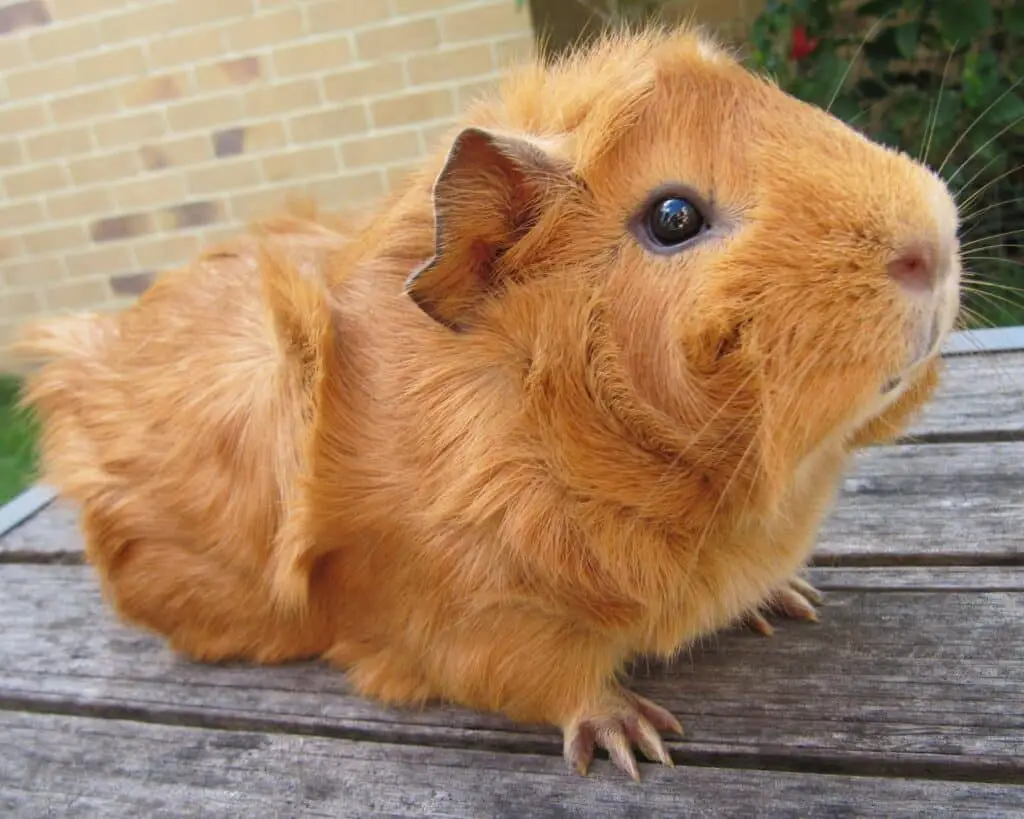
Conclusion
The intriguing phenomenon of guinea pigs vibrating, or “purring,” is a remarkable aspect of their communication and social behavior. Through our exploration, we have uncovered that these small rodents employ this behavior for various purposes, shedding light on their complex social dynamics and emotional expressions. Guinea pigs vibrate when they are content, relaxed, and in a state of comfort. This gentle, rhythmic sound and movement signify their happiness and well-being, allowing them to bond with their companions.
Vibrations play a crucial role in their intricate social hierarchies. In group settings, guinea pigs may vibrate as a means of asserting dominance or submitting to more dominant individuals. This non-verbal communication helps maintain harmony within their communities. Ultimately, understanding why guinea pigs vibrate enhances our connection with these endearing pets, enabling us to respond to their needs and emotions more effectively.
Beyond their immediate social and emotional expressions, guinea pig vibrations also serve as a testament to the rich diversity of the animal kingdom and the unique ways different species communicate. It is a reminder that even seemingly simple creatures possess complex social structures and forms of expression that may not be immediately obvious to humans. The study of guinea pig vibrations underscores the importance of responsible pet ownership. Guinea pigs, like any other pets, require attentive care and a deep understanding of their needs.

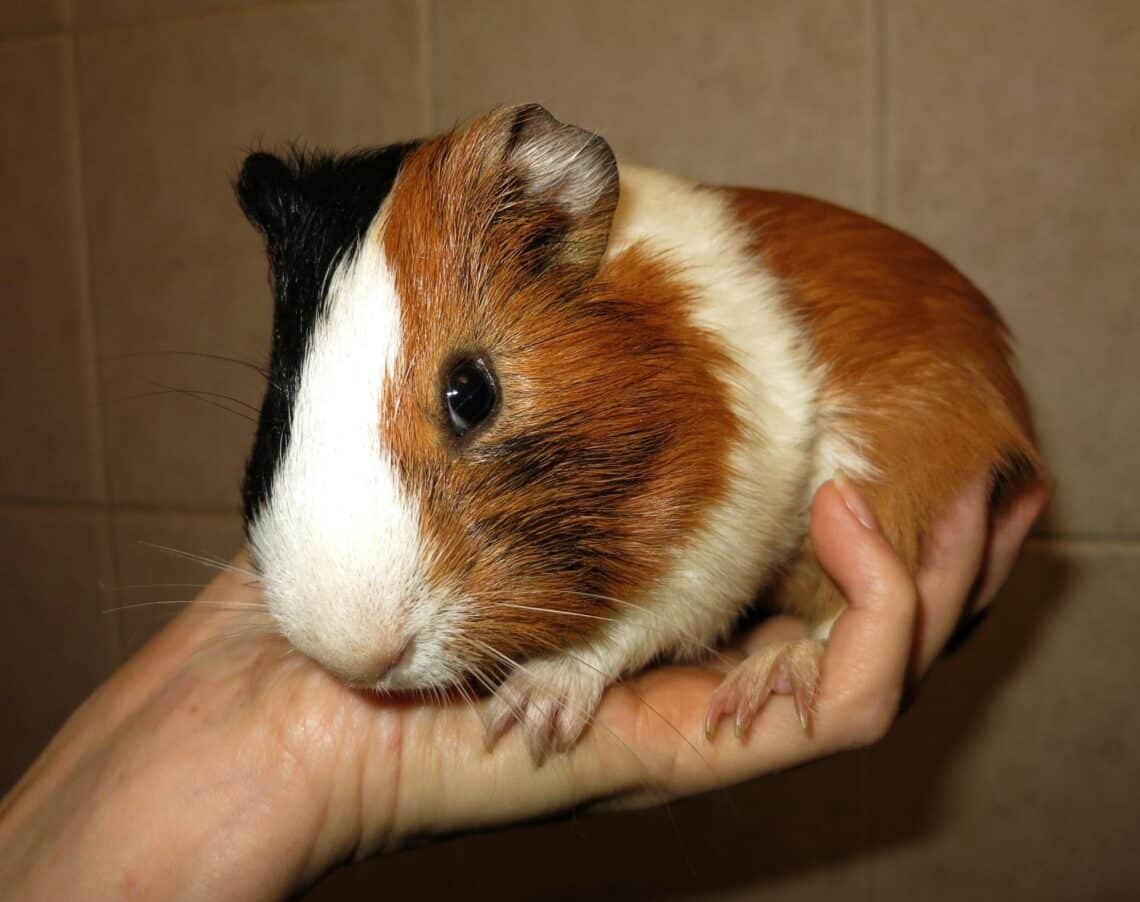
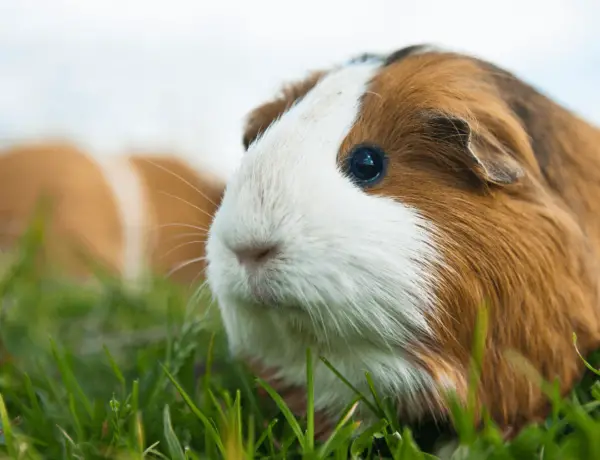
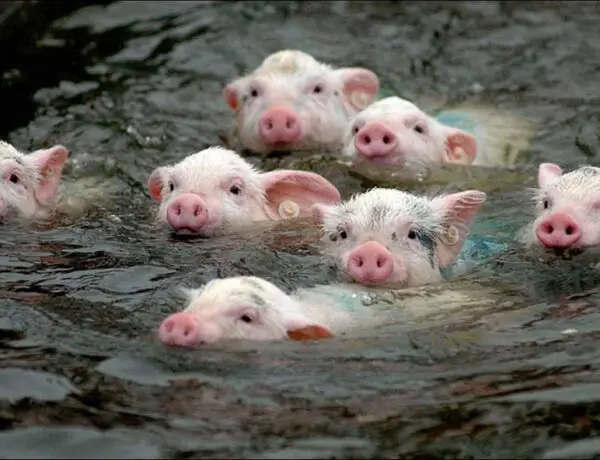
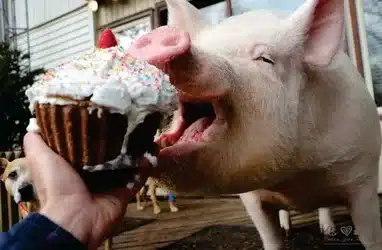
No Comments